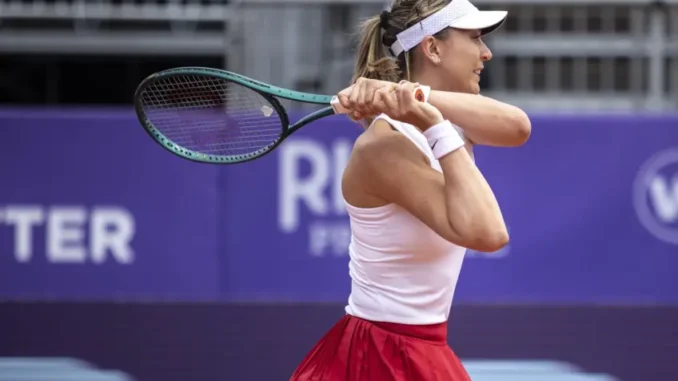
The world of professional tennis is a relentless arena, demanding not only peak physical condition but also an unwavering mental fortitude. For Spanish star Paula Badosa, the past few years have been a testament to her profound resilience, as she has grappled with a debilitating chronic back injury that has taken a significant toll, both physically and, perhaps more acutely, mentally. Her journey back to the court, marked by moments of despair and immense courage, offers a poignant insight into the unseen battles athletes face.
Badosa’s struggles with her back injury first flared up in 2023, forcing her to take an extended hiatus from the sport she loves. The severity of the issue, which at one point led her to contemplate early retirement, has been a constant source of worry. She has openly spoken about the daily torment, confessing that she would wake up “feeling scared” about her back, the uncertainty casting a long shadow over her life. This constant apprehension, coupled with the physical pain, has had a severe mental impact, pushing her to the brink.
“This time, for me, mentally, it hurt,” Badosa recently revealed, reflecting on her latest period away from the game since March. Her words underscore the profound emotional distress caused by the interruption to her career, especially at a time when she felt she was playing her best tennis. “Because I think I was playing the best tennis of my life. I was playing very well. Physically, I was feeling very well also. Stopping like this was tough for me. Finally, I’m back pain-free.” This sentiment highlights the cruel irony of her situation: achieving a career-best season, including a stunning run to the Australian Open semifinals in January that saw her re-enter the WTA top 10, only to be sidelined once again.
The recurring nature of her back problem, described as a chronic injury that will likely remain with her “forever,” has forced Badosa to confront the possibility of a premature end to her career. She has admitted to delaying surgery, preferring to manage the pain with regular painkillers, a decision driven by her desire to continue competing for as long as possible. “I know that I am going to retire young, and the next day I will go straight to the operating room,” she bravely shared, acknowledging the inevitable. “I know this from the race I’m in and from the problems I have with my back. If they tell me to stop at 30 or 32, then fine, but if I can endure it in some way, then I’m going to try.” This raw honesty reveals the immense sacrifice she is willing to make for her passion.
The mental anguish of living with a chronic injury extends beyond the court. Badosa has described how the pain, which now sometimes affects her nerves, makes it difficult to lead a normal life. The stress of not knowing how her back will feel each day, coupled with sleepless nights, has been mentally exhausting. “Mentally it is what is costing me the most,” she admitted, painting a vivid picture of the invisible battle she fights daily.
Despite these profound challenges, Badosa’s unwavering determination shines through. Her recent return to action at the Internationaux de Strasbourg, where she advanced after her opponent’s retirement, was a significant step. While acknowledging she is “still very far from my level,” her presence on court, playing pain-free, is a testament to her fighting spirit. Her primary goal now is to remain injury-free as she navigates the remainder of the Strasbourg tournament and prepares for the upcoming French Open.
Paula Badosa’s journey is a powerful reminder that behind the glamour of professional sports lie human stories of struggle, resilience, and an unyielding passion for the game. Her candidness about her mental and physical battles not only inspires but also sheds light on the often-overlooked aspects of an athlete’s life, proving that true strength lies not just in winning matches, but in overcoming adversity with courage and honesty.
Leave a Reply